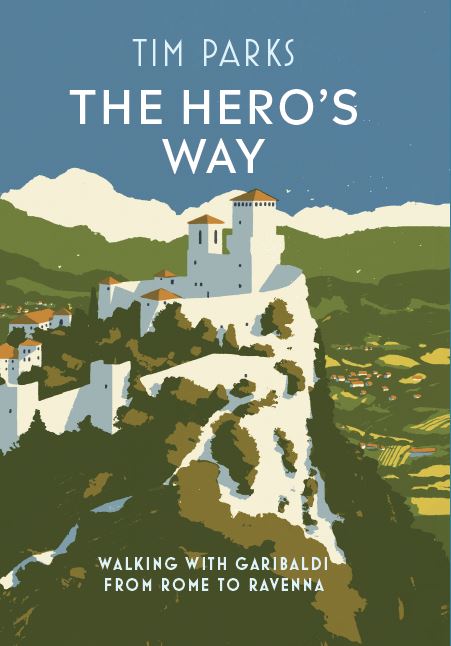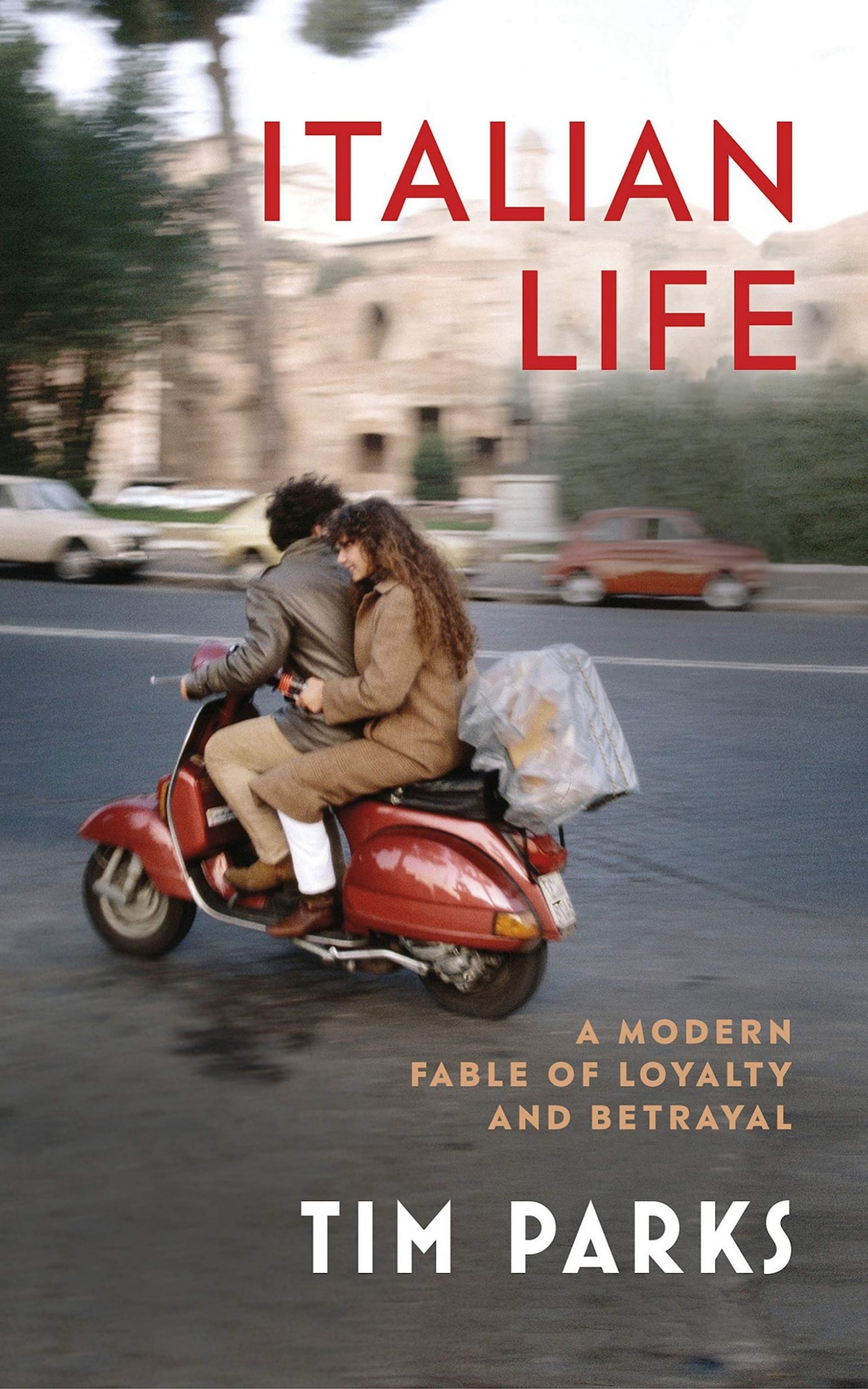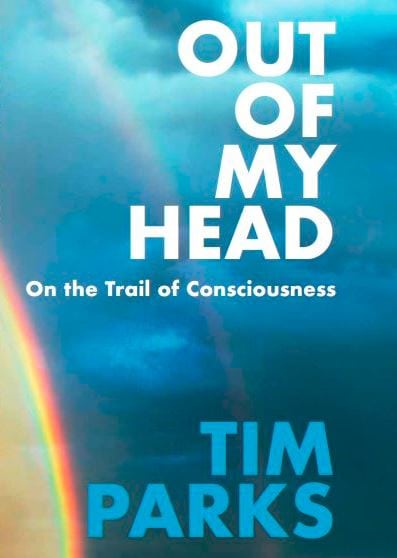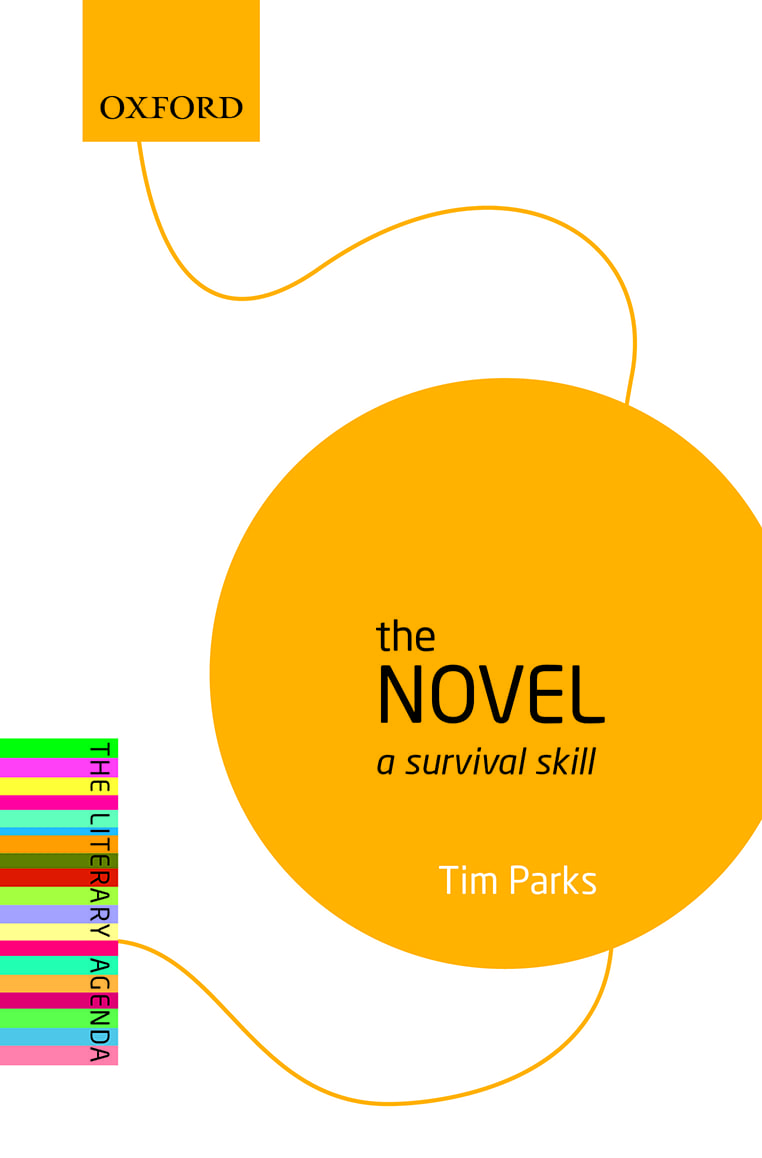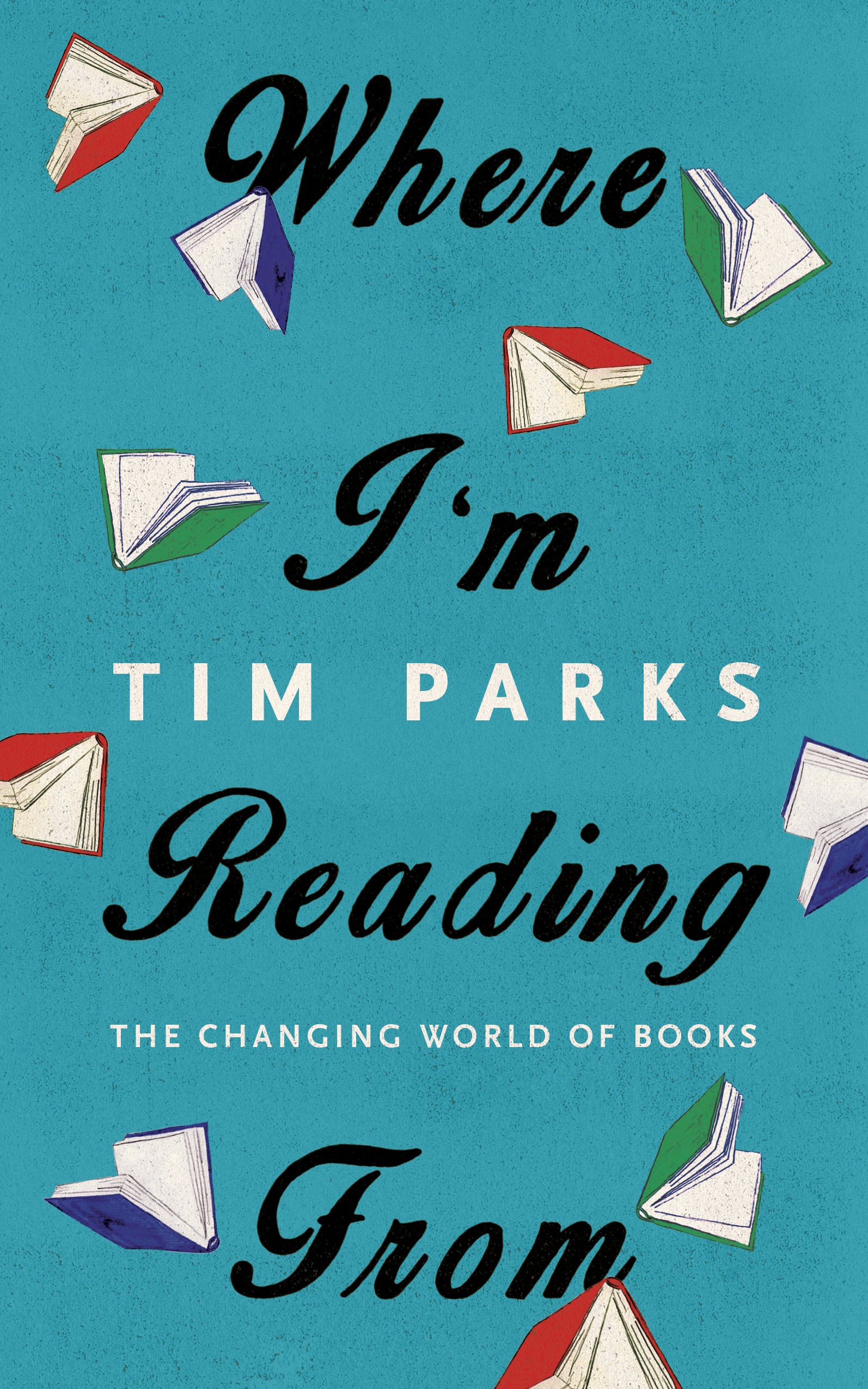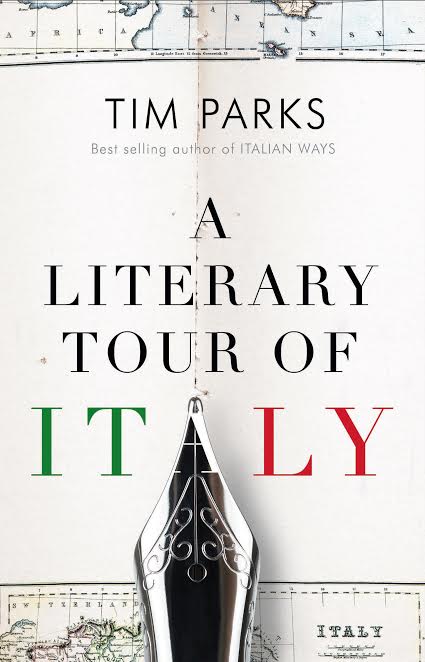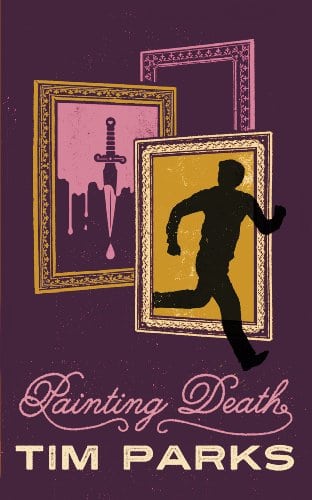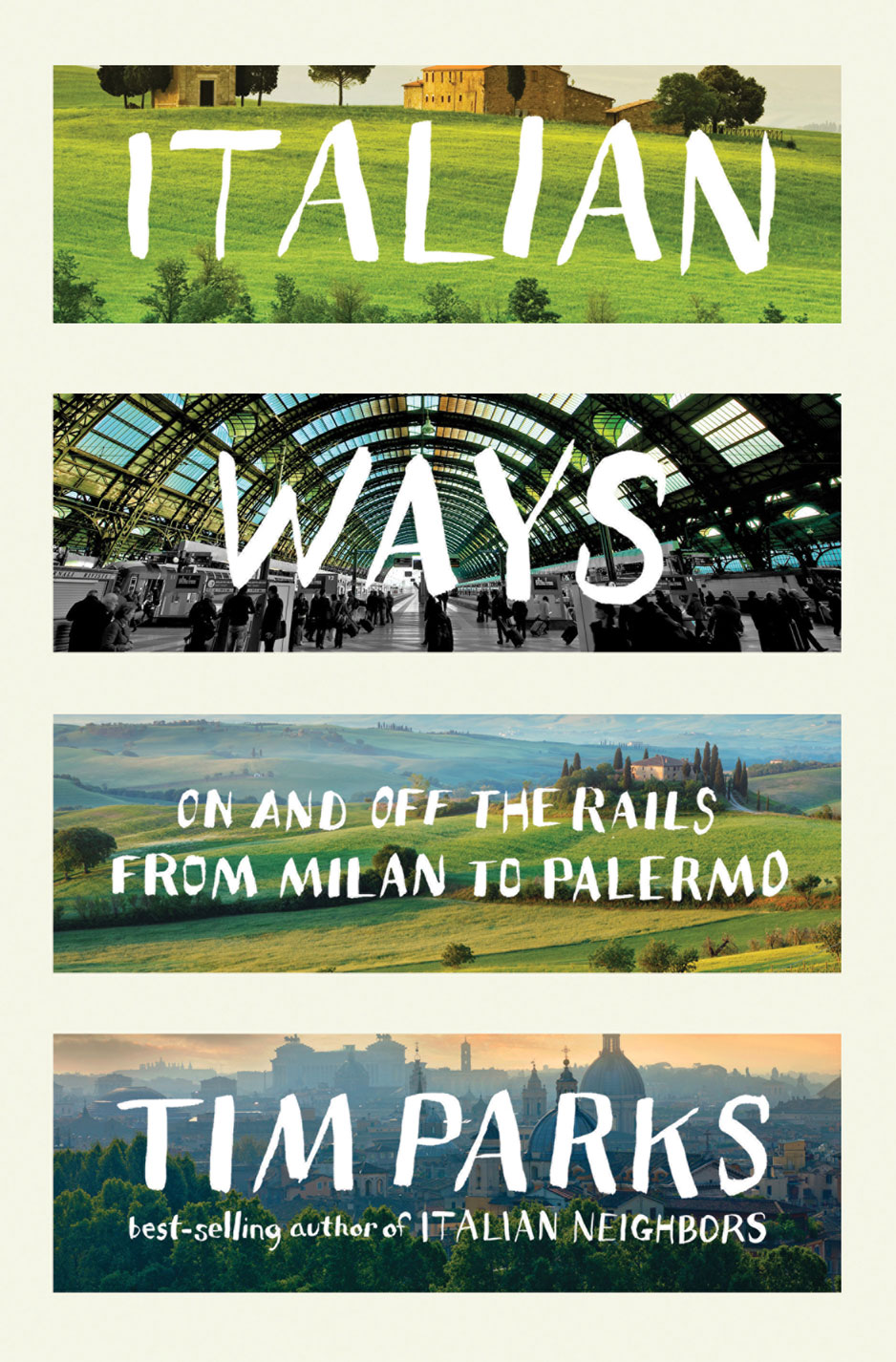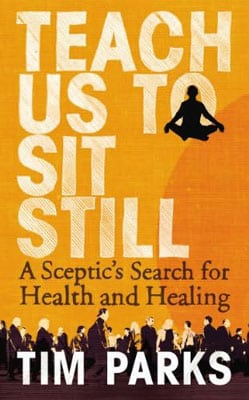Here’s an odd little piece that’s easy to extract. A strange encounter on an empty train during a strike in Milan. I’ve been talking about the habit so many people in Italy seem to have of coming to sit right near you when there are oceans of space available…
Once, during a strike, I found a completely empty Intercity at Milan station, a ghost train. Eventually, an announcement said that the train might leave in two hours’ time but this couldn’t be guaranteed. The voice apologized for any incon-venience. Having no inclination to go and find myself a hotel, I decided to sit in the train and read. I chose a carriage half way down the long platform. Since it was an Intercity, there were compartments. Suddenly, a man was tugging open the slide door to join me, a rather sad, lanky middle-aged man in a gray raincoat with a slack worried mouth and thick spectacles. He had a huge suitcase, the sort of suitcase that has you wondering where on earth its owner can be going and for how long. Are these all his worldly possessions? Is he a refugee?
With some effort the man swung the suitcase up onto the luggage rack, sat down, brushed imaginary crumbs from his trousers, looked at me, smiled, and began – I knew I couldn’t stop him – to talk: about the strike, about a difficult change of trains that awaited him in Venezia Mestre, about the impossibility of ever knowing what would happen in Italy even when you began the most banal of journeys. Wasn’t that so? It’s an interesting thing how often Italians like to refer to the country as if it were foreign to them, inhabited by people who are inexplicably unreliable. I barely nodded. “Ecco il capotreno!” he suddenly shouted and he jumped up and hurried out of the compartment and down the corridor to talk to a man in a smart cap walking along the platform.
This was my chance. Furtively, I picked up my own small bag, headed the other way up the carriage, and pushed through the two connecting doors into the next. I must have walked through about four completely deserted carriages, going toward the locomotive, before choosing another compartment. Since the electri-city in the train hadn’t been turned on, I was looking for a place where one of the big floodlights high up in the station outside would give enough light to read by, even through grimy windows. Here. Good. I sat down. For perhaps ten minutes I read. I was happy. The truth is, I really don’t mind sitting on an empty train for a couple of hours and reading. If a book is good enough, it doesn’t matter where you read it. There are times when I have even welcomed train delays. After perhaps fifteen minutes, with a sudden wrenching of the compartment’s sticky sliding door, breathless and anxious, the same man reappeared.
“There you are!” he cried. He sat down. He resumed his conversation. He began to tell me what the capotreno had said. The train would be leaving, but only when they found a co-driver. They were having trouble finding a co-driver. Because of the strike. As for Mestre, heaven only knows. His last train for some mountain destination departed at 8.15. “Who knows where I’ll be sleeping tonight?” He seemed quite pleased with this melodramatic reflection. Then, glancing up at the luggage rack, he asked, “Where’s my suitcase?”
I shook my head. “You left it in the other carriage.”
“What other carriage?”
The man hadn’t realized that he was now four carriages nearer to the locomotive.
“Oh.” He squinted at me. “I knew something was odd,” he said. “But why on earth did you move?”
“I want to be alone,” I told him.
Alarmed, he jumped up and hurried back down the train to reclaim his suitcase. For a moment it crossed my mind he might be a ghost; he haunted this train, even when it was parked for days out in empty sidings. That would explain why he was so desperate for company. Taking no chances, I moved again, this time into the first class. They can’t fine you for being in first class until the train actually starts moving. I felt sure this was a second class ghost.
And here’s a rather more reflective piece from later in the book, on a long trip down south…
Like a vast beached sea monster, the abandoned chemical plant north of Crotone disfigures the coastline: another failed attempt to do something with the South. Because the conundrum is always this: why is it that the South finds it so difficult to turn its very real assets into tangible success? Here we have smart people, extraordinary landscapes, a beautiful coastline, beaches, seas, art treasures. So why is there so little tourism? Where are the English swarms, the German hordes who invade the coast of Spain? Instead of building hotels, they had tried to introduce a massive chemicals industry. It failed. In Taranto, just across the gulf they had introduced what is now Italy’s largest steel plant; magistrates are trying to close it down because the levels of pollution are scandalously high. In the newspaper this morning, just before boarding the train, I saw that Wind Jet, the Sicilian low cost airline which one of my hosts was boasting about during out dinner in Modica, has stopped flying, leaving hundreds of passengers stranded. They have failed. They can’t compete. They spent too much money on all the wrong things. The trains are still running but mainly empty, costing the passenger next to nothing, costing the State a fortune. A section of line between Metaponte and Taranto, my next destination, is out of action and has been for more than a year. Damaged by landslides. Which will mean another bus ride.
Never mind, I told myself. Sit back, gaze through the smeared windows, enjoy it.
Beaches. Bleached white river beds. Mile after mile of olive groves. The Gulf of Taranto, empty sand with clear blue seas. Kiwi plants, row after endless row of them. Field after field. Broken walls. Stazione di Torre Melissa. Vineyards. Promontories with grey rock against blue sea. Stazione di Cirò. The capotreno’s whistle. An ancient tower on a low hillside. Squat square masonry. Abandoned factories. Cactuses and scorched grass. Stazione di Crucoli. Graffiti: “Ti penso sempre, amore mio.” Immigrants with cheap merchandise climbing on an off, getting stuck between swing doors. A stocky Slav man on the seat behind me organizing them. Get off here. Get off there. Stazione di Cariati. “Anna e Giulia troie” (scrubbers). No sign of railway personnel anywhere. In English: “Boys 1978. Wanderers Everywhere.”
In the seats across the corridor from me four children are headed for the beach with bags and towels and snorkels. It seems Calabrian railways is offering free travel to under eighteens heading for seaside destinations on certain regional trains. Fill in a form, show an ID, get a travel card; a lot of bureaucracy to save a couple of euros.
Stazione di Mandatoriccio Campana. An urgent bell announces the train coming the other way. Once it has gone by we can proceed on our single track. KM 173+863 says a sign. A one-carriage train, a tiny station building, a very long platform. An air strip for aliens. Stazione di Calopezzati. As well as their big boards laden with trinkets, the immigrant vendors also carry backpacks with further supplies. One trusts they have some water with them. Their days must be intolerably hot. It is in the high thirties again. Stazione di Mirto Crosia. “Katerina ti amo.” “Piccola, perdonami.” Forgive me. Stazione di Rossano. Yellow plastic tables on the platform and men drinking wine. In this heat. Domani sarà tardi per rimpiangere (tomorrow it’ll be too late for regrets).
A stocky man climbs on board with his stocky wife; they are healthy and solid and sunburned. He asks why I’m taking pictures of the stations. The graffiti. I tell him. He’s Albanian, he says. He’s been in Italy 15 years. Drives a truck, in Taranto. There is no work now with the crisis. In particular there is no work for an Albanian. After 15 years here he’s still not treated as an equal. It doesn’t bother him now. He came illegally on a rubber dinghy but managed to get his papers in the end. It’s harder these days. He was lucky. His wife nods and smiles at everything he says. They speak Italian to me and Albanian to each other. Now he wants to see my camera. It’s a cheap digital Olympus. He turns it over in hairy hands, his forearm tattooed with a blurry Cupid. He asks me what the camera’s memory is. I’ve no idea. I never enquire about such things. They have been holidaying with their son, he says. In Catanzaro. He has four sons. Ten grandchildren. Three great grandchildren. Ah. This is what he wanted to tell me. He’s proud of his family.
“Guess how old I am,” he challenges.
His wife is smiling complacently. I have no idea, I’m rather taken aback that he claims to have great grandchildren. He doesn’t look that old. What’s the youngest you can have great grandchildren?
“I’d say you’re sixty-five.”
“Fifty-seven,” he grins triumphantly.
He’s my age! I calculate. Average childbearing age between eighteen and nineteen.
“My first at seventeen,” the wife says.
“Can’t stop it,” he laughs. “It’s life!”
He seems blissfully happy with his lot.
“People try,” I said. “To stop it, I mean.”
“You can’t,” he shakes his head. “Fools. It’s life.”
At Sibari we switch trains for the section to Metaponto; that is, we exchange one heavily-scrawled, poorly air-conditioned, single-carriage diesel for another heavily-scrawled, poorly air-conditioned, single-carriage diesel. The train revs and the fumes intensify. The air conditioning is just enough to stop us losing our heads. Just. A whistle and a lurch. One is usually so worried on trains about time, or at least so conscious of it. Will we depart on time, are we running on time, will we arrive on time? Will I win my bet? Again I remember that it was the trains that forced the country to set its clocks in unison. “This Regionale is traveling with a delay of 11 minutes. Trenitalia apologizes for the inconvenience.” “This Interregionale Veloce is now approaching Verona Porta Nuova. Terminus of our journey. On time! Thank you for traveling Trenitalia.” Time time time. But today I’ve decided to pay no attention. I shan’t think of time at all. I refuse. After all, there is only one train running north and east along the Gulf of Taranto, rattling and swaying and stinking of diesel. Our train. There are no branch lines. There is no choice between Regionale, Regionale Veloce or Intercity, no Eurostar, no Frecciarossa. There is nowhere else to go but where we are going, along the timeless Mediterranean coast.
I have firmly decided I’m not going to look at my watch the whole four-hour journey. I’m on holiday, in a part of my country I have never visited. It’s hard, though. Hard not to look at your watch, hard to be here now, on each stretch of the journey, without being anxious for the end, without wanting anything to happen on the trip that you can engage with and write about. Buy your ticket each day now, I tell myself, wait for the train, climb aboard. Don’t expect company for the journey. Don’t expect to understand when there is a delay. Or even if there is a delay. Don’t ask whether the train is punctual. Don’t worry what Taranto will be like, what Lecce will be like, or Brindisi, or Bari. Don’t be concerned that you may have nothing to say about these places. Just be here, on the journey, at every moment of the journey; when the train is hurrying on and the landscape is whisked away – here and gone, here and gone – when the train stops and the same dull station name imposes itself for twenty minutes, Trebisacce, Trebisacce, Trebisacce. Learn to be happy with Trebisacce, and happy when the inspector blows his whistle; an electric warning sounds and the doors slide shut. Trebisacce slips behind, at last. It’s gone. I almost miss it. Now Roseto, now Monte Giordano. Accept the names that come and go, places that will never mean anything to you – Rocca Imperiale, Policoro. You are simply here, on a journey from Crotone to Taranto, from this moment to the next, transported by Le Ferrovie dello Stato.
I think I am learning to take the journeys like this, less anxiously. The sun helps, and the general feeling that these railways are not part of an urgent business world, they can’t be speeded up, they just are what they are. I’m learning to take them day by day and to accept that I really did move my life to Italy thirty years ago. I’m not sure why, but this trip to the South has made me think about that decision again. Thirty years ago I surrendered my identity, my Britishness. I became this strange hybrid, neither here nor there. Between places, between cultures. Recognized everywhere as English, but not really English now. Accept that. Now you are on a journey through tiny stations whose names are all new to you – Scanzano Jonico – but as real to those who live here as any other place. They are as much part of your adoptive country as Verona, as Milan. Look at the bamboo growing in the gulley. Look at the dry gorse, look at the ruins and broken doors and the fat mother crouching on the platform to spray deoderant onto the armpits of her infant children. You are here now, arriving in the station of Metaponto, whether on time or not on time. It doesn’t matter.
So for a few hours, my mind lapsed into this strange mood, lulled perhaps by the rhythm of wheels on rails, stifled by the poor ventilation, mesmerized by the fierce sunlight on this arid landscape.



